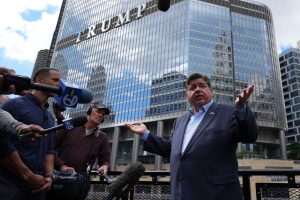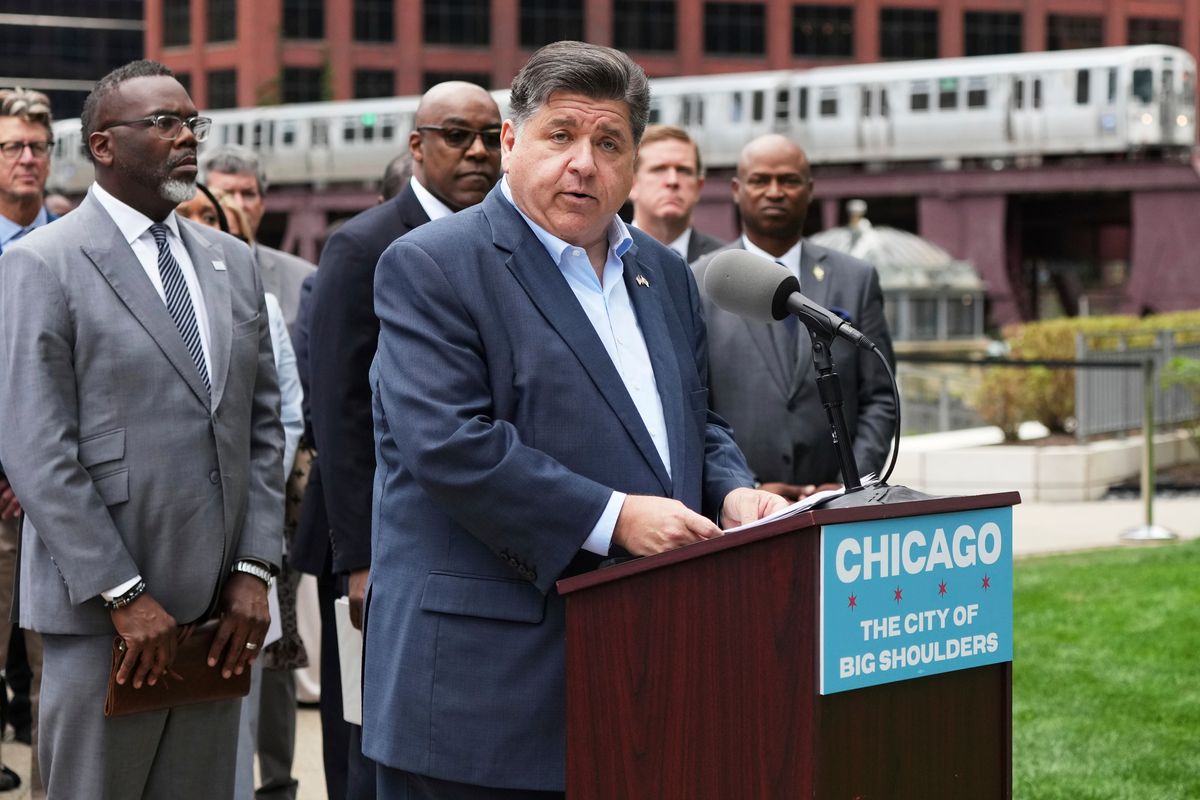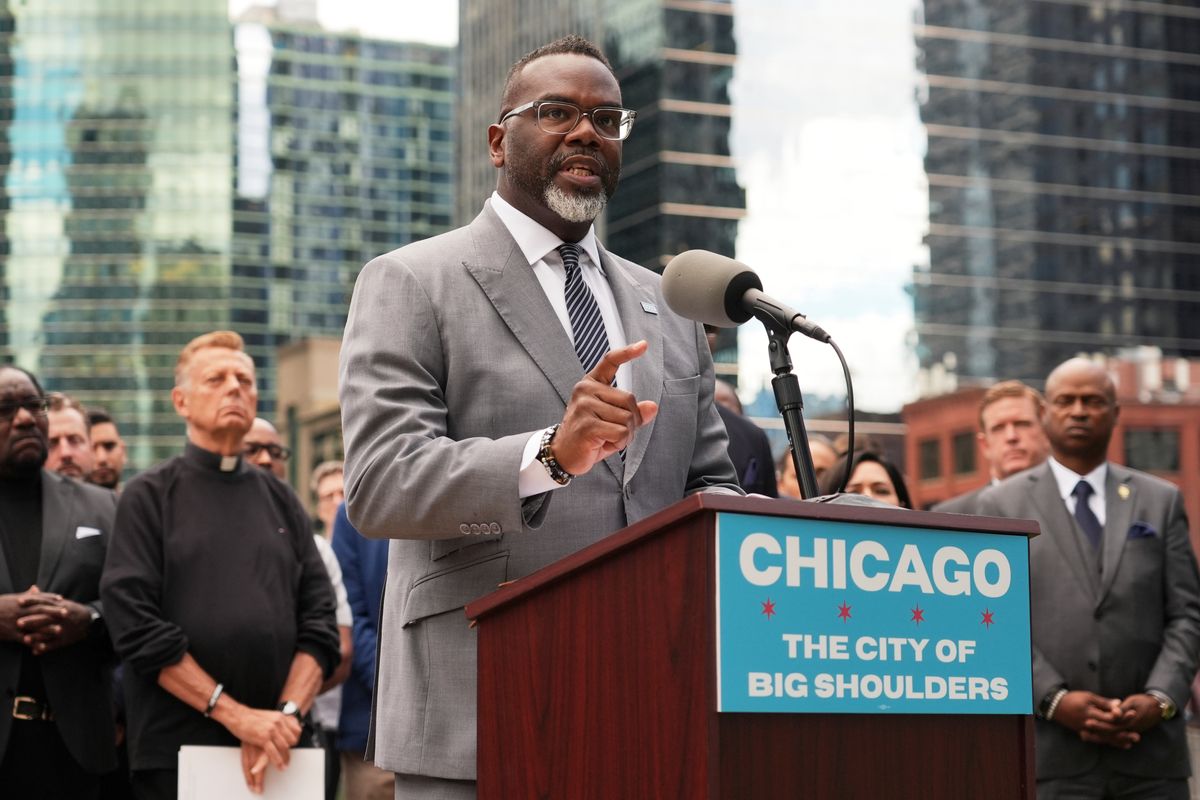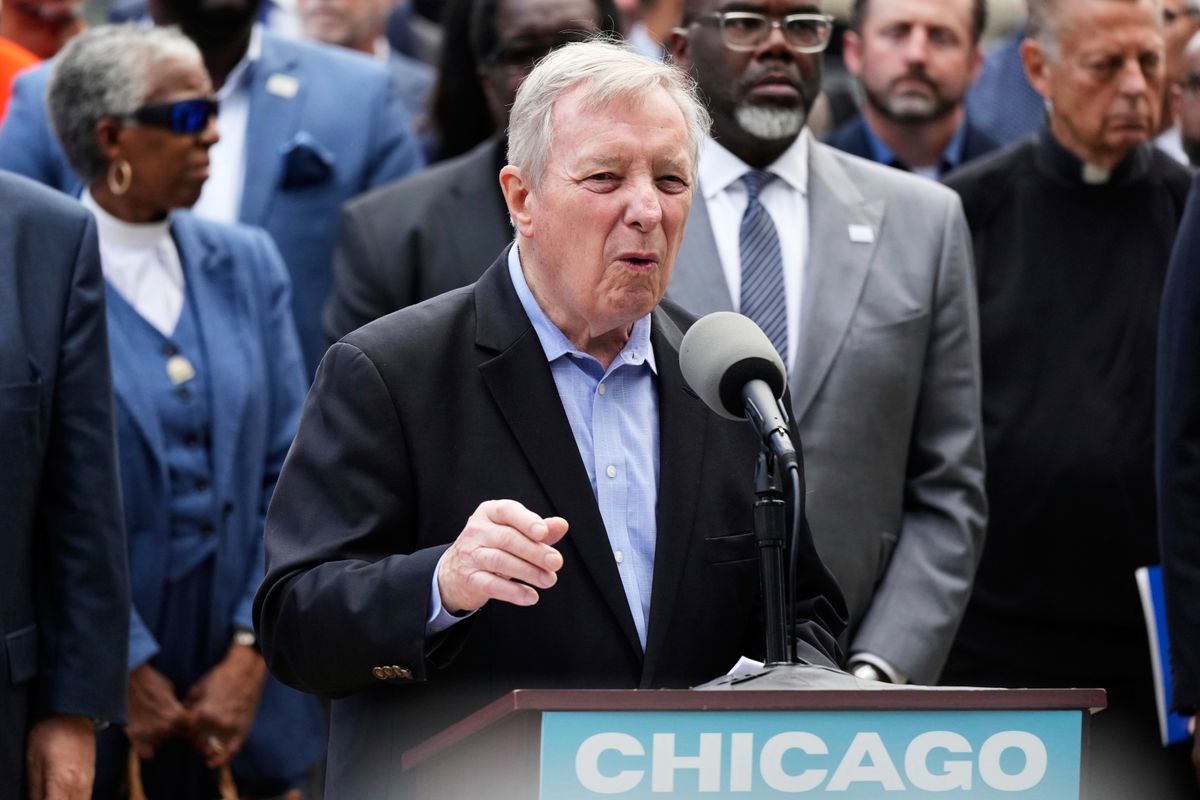CHICAGO (AP) — President Donald Trump’s threats to deploy National Guard troops to Chicago sent ripples through America’s third-largest city as many residents defended their home against Trump’s escalating rhetoric toward its violent crime, including claims it is a “killing field.”
The threat of federal troops stirred a mix of fear, frustration and defiance for residents as they pointed to historic drops in violent crime. Groups constantly pressing for police reform said sending troops who lack training in de-escalating violence or any knowledge about the nuances of neighborhoods still grappling with violent crime would undo progress made in recent years.
The sentiment was echoed by people going about their day — commuters heading to work, cyclists weaving through traffic, and friends pausing to take photos along Michigan Avenue — who said the presence of troops would only heighten tensions, not ease them.
“It’s a direct affront to the progress our communities have made,” said Bradly Johnson, who leads BUILD Chicago. The anti-violence organization focuses its efforts on neighborhoods on the city’s West Side that have seen persistent crime, even as rates overall have fallen.
“It’s not a war zone,” Johnson said. “They’re vibrant resilient communities where young people deserve opportunities and not intimidation.”
Trump has focused on Chicago
On Tuesday, Trump called Chicago a “hell hole” and repeated that Chicagoans are asking “Trump to come in” to reduce crime in the city. The statements echoed comments earlier this month when Trump indicated Chicago may be next for a federal crackdown, claiming Chicago is “a mess” and residents are “screaming for us to come.”
Trump has long singled out Chicago, making it a recurring theme on the campaign trail in both 2016 and 2024. He has drawn controversial comparisons between the city and war zones like Afghanistan, and in 2017, he vowed to “send in the feds” in response to gun violence.
But data paints a more nuanced picture of crime — one that varies dramatically block by block and that has seen recent progress.
Violent crime in Chicago dropped significantly in the first half of the year, representing the steepest decline in over a decade, according to city data. Shootings are down 37%, and homicides have dropped by 32%, while total violence crime dropped by over 22%.
“The empirical data is very clear that the Chicago trend is extremely positive,” said John Roman, who directs the Center on Public Safety and Justice at the University of Chicago. ”… Chicago is doing better than the rest of the country on a lot of really important measures.”
Still, the city’s most ardent defenders acknowledge gun violence still plagues parts of the city in recent years, particularly in warmer months. Chicago saw about 570 homicides in 2024, according to city data. Shooting lethality — the rate at which shooting victims die from being shot — has increased in recent years, as has the number of high-capacity magazines recovered by Chicago police at shooting scenes, according to the University of Chicago Crime Lab.
Crime in Chicago represents persistent, localized challenges, said Kimberley Smith, director of national programs for the University of Chicago Crime Lab. The neighborhoods with the highest homicide rates experience about 68 times more homicides than those with the lowest rates.
Rene Cardona, a maintenance worker born and raised in Chicago, acknowledged these inequities in exposure to violent crime while maintaining that he feels safe in Chicago generally.
“It depends where you’re at and what time it is,” he said. “Overall, Chicago’s a pretty good place to live … There’s more good people than bad people here.”
Crime has fallen in Chicago through groups’ efforts
Smith attributes much of the drops in violent crime to a focus in Chicago on the systemic drivers of violence, rather than the militaristic approach Trump has touted in Washington, D.C. She encouraged more federal investment in researching these types of violence-prevention strategies, calling Chicago “a hub for innovation in gun violence prevention.”
Jahmal Cole, founder of the community organization My Block, My Hood, My City, said Trump’s comments “erase this work being done on the ground by local leaders, community organizations and residents themselves” to combat gun violence.
“As for Trump’s remarks, it’s worth remembering that rhetoric alone doesn’t improve public safety,” he said. “We need smart, community-focused investments, not sensationalism.”
As a show of unity against the move, Illinois Gov. JB Pritzker, a potential 2028 presidential contender, convened roughly 100 elected officials, pastors, business leaders and activists at a splashy news conference against the backdrop of gleaming skyscrapers along the Chicago River. The attendees Monday ranged from U.S. Sen. Dick Durbin, the Senate’s No. 2 Democrat, to the Rev. Michael Pfleger, a well-known Catholic priest in the city.
“Take the wasted money in sending the National Guard and the wasted money used on threatening commercials by your Homeland Security secretary and use it on real violence and prevention programs that will bring peace,” Pfleger said.
Residents reject Trump’s statements
Art Jarrett, a business owner just south of downtown, also pointed to Trump’s business presence in the city, saying: “He can’t think it’s that big a killing field; he wouldn’t have built a building here.”
“He’s full of crap,” said Jarrett, who has felt safe in the 57 years he has lived in Chicago.
Pastor Donovan Price, a local advocate for gun crime victims, said Trump “unequivocally does not know what they’re talking about” when it comes to crime in Chicago. He said federal troops threaten to undo progress toward reducing crime.
“When things are finally starting to turn around, you have someone come up with something totally unnecessary that could perhaps change the tide,” he said. “He’s trying to strike the hope out of the hearts of good people in our city.”
Sydney Aldrich, 26, said deploying federal troops isn’t the answer and hoped to challenge the harsh narrative of violence that so often defines her city in the news.
“We have a lot of community members around town that are supportive of one another, and we watch out for each other,” she said.
___
Associated Press writer Ed White in Detroit contributed to this report.
By CHRISTINE FERNANDO, SOPHIA TAREEN and OBED LAMY
Associated Press




